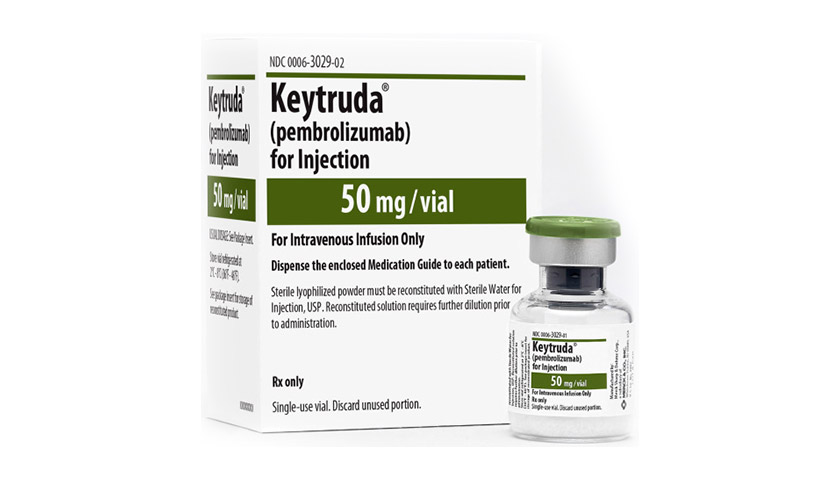NICE finds solution to making Keytruda available for TNBC

Around 100 patients in England and Wales with triple negative breast cancer (TNBC) that has spread to other parts of the body could soon access treatment with Merck & Co/MSD's Keytruda, on the recommendation of cost-effectiveness agency NICE.
The health technology assessment (HTA) body has published draft guidance supporting routine NHS use of Keytruda (pembrolizumab) along with chemotherapy in patient with metastatic TNBC whose tumours express the biomarker PD-L1 with a combine positive score (CPS) of 10 or more.
It's not the first immunotherapy to be made available in these patients, as Roche's Tecentriq (atezolizumab) plus chemo is already backed by NICE for metastatic, PD-L1-positive TNBC.
NICE said earlier this year that there wasn't enough evidence to support the use of Keytruda and chemo as a first-line treatment for these patients, as its long-term benefits were uncertain and there was little data to compare it to Tecentriq.
Now, it has given a green light to a narrower use of Merck's drug that avoids any overlap between the two drugs, making them available for different patient groups.
For Tecentriq, PD-L1 expression is measured using a slightly different method called immune cell staining (IC), and the regimen has been cleared for use in patients with IC equal or greater to 1%.
Keytruda will be restricted to patients with a CPS of 10 and an IC of less than 1%, said NICE, meaning that atezolizumab combination is no longer a direct comparator.
That removes "a key barrier to its approval" and makes Keytruda plus chemo "an alternative treatment for people who cannot have [the] atezolizumab combination," said the agency in a statement.
TNBC is a particularly aggressive form of breast cancer, with few treatment options aside from surgery, radiotherapy and chemotherapy.
A key challenge is that TNBC tumours lack oestrogen, progesterone and HER2 receptors, so it isn't possible to treat the disease with drugs that target these biomarkers.
EU approves neoadjuvant use
Shortly before NICE delivered its solution to first-line use of Keytruda in TNBC, the European Commission approved Merck's drug for a new use as a treatment given pre-and post-surgery in earlier-stage TNBC patients.
The regulator has cleared the drug for use before surgery alongside chemotherapy in the neoadjuvant setting, as well as in the post-surgery adjuvant setting as a monotherapy, to prevent tumours from recurring.
The new indication – which was approved in the US last July – is based on the results of the KEYNOTE-522 trial, which found a 37% reduction in the risk of disease progression, recurrence or death with the regimen.


